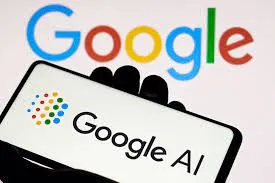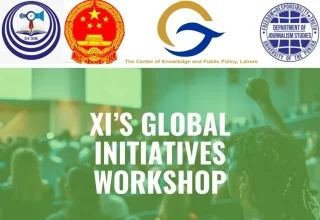
As concerns rise over the impact of AI-generated search results on publishers’ revenues, Google has denied that its AI features are to blame for declining traffic to websites.
The tech giant insists that overall click-through rates from its search engine have remained “relatively stable” over the past year, despite a sharp uptick in AI usage and changing user behaviour.
Google’s Vice President and Head of Search, pushed back against multiple third-party studies and mounting criticism from media outlets that claim AI-powered search tools — including AI Overviews and chat-style interfaces — are driving fewer users to external sites.
“This data is in contrast to third-party reports that inaccurately suggest dramatic declines in aggregate traffic — often based on flawed methodologies, isolated examples, or traffic changes that occurred prior to the roll out of AI features in Search,” Reid wrote.
While Google did not release concrete figures, it claimed that click quality — a measure of how long users stay on a website after clicking — has slightly increased. According to Google, users referred through AI responses are now more likely to engage deeply with source content, making those referrals more valuable than in the past.
However, analysts and publishers remain unconvinced.
“That word ‘stable’ is doing a lot of work,” one media analyst noted. “Google is not sharing site-level data, nor is it specifying which publishers are benefiting or losing traffic.”
AI vs traditional clicks
AI Overviews, introduced in May 2024, offer condensed AI-generated answers at the top of Google search results, often reducing the need for users to click through to the actual source. Since its debut, studies have shown troubling trends: a Similarweb report found that zero-click searches for news rose from 56% in May 2024 to 69% by May 2025.
Despite these findings, Google maintains that AI is expanding access to information and surfacing more links on results pages, which it claims means “more opportunities for websites to get clicked.” But critics argue that an increase in visible links does not necessarily translate to actual user engagement — especially if AI answers satisfy the query on the page itself.
Reid also acknowledged that user trends are shifting, conceding that some websites are losing traffic, even if aggregate levels remain unchanged. She said users are increasingly turning to content featuring “authentic voices,” such as forums, podcasts, and video platforms.
Changing habits: TikTok, Reddit and Amazon challenge Google
Even within Google’s leadership, there has been past acknowledgment that traditional search is losing ground.
In 2022, Google’s then-SVP Prabhakar Raghavan revealed that nearly 40% of young users now start their searches on TikTok or Instagram, particularly when looking for local recommendations — once a stronghold of Google Maps and Search.
Meanwhile, Reddit and Amazon have become go-to platforms for product searches and deeper topic research, prompting Google to roll out new features such as forum filters and integrated Reddit results.
Publisher frustration grows
For many online publishers, the stakes are high. Declining referral traffic — especially for news organisations already facing financial pressure — has prompted widespread concern about the viability of digital journalism in the age of generative AI.
While Google has introduced tools to help publishers adapt — including monetisation solutions like micropayments and newsletter integrations — critics see this as a response to growing dependence on the platform rather than a solution to the structural issues AI has exacerbated.
“Google wants publishers to focus on ‘click quality’ rather than raw volume,” noted one editor at a major news outlet. “But if AI keeps users on the search results page, how are we supposed to survive on quality alone?”
While Google’s blog post aims to calm fears, some observers see it as an attempt to control the narrative amid mounting backlash — not just from publishers, but from regulators and policymakers scrutinising the company’s dominance in both advertising and search.
“Google may still send billions of clicks,” one media researcher noted, “but that’s like saying the ocean is wet. It’s not about absolutes — it’s about who’s sinking, and who’s swimming.”











































